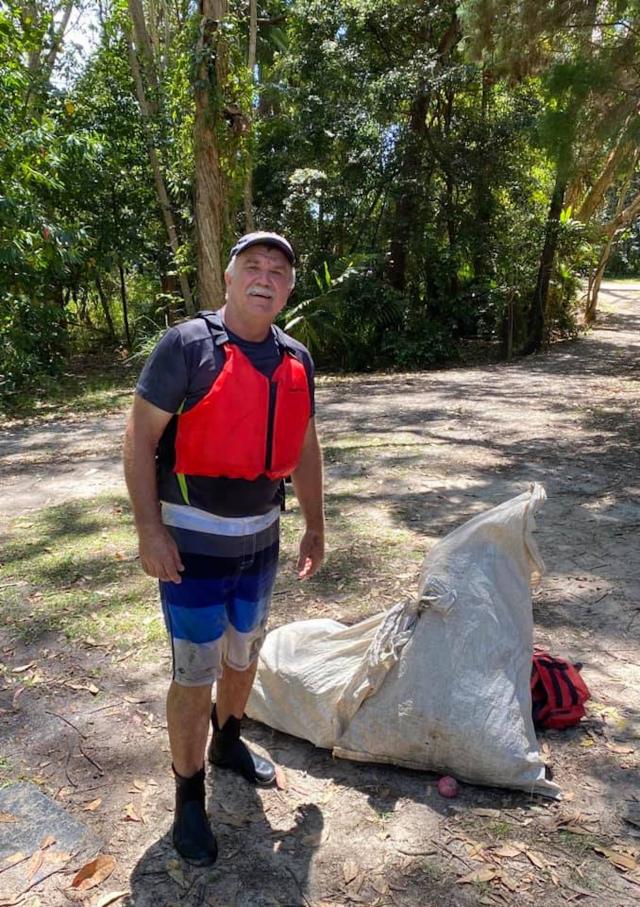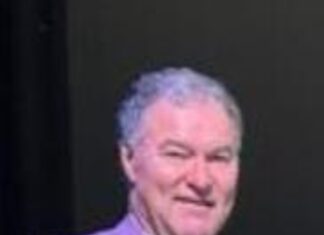NT: Over the nearly 20 years that you’ve been the face of Clean Up Noosa, have you seen an improvement in public awareness of waste issues?
Joe: Awareness, yes, but that doesn’t mean there’s been a change in the attitudes of some people. There’s still a long way to go. We’re still finding bush dumping grounds, and you only have to walk down a busy street to see that stuff still gets discarded. We still haven’t got through the message of personal responsibility for the waste we generate every day. That’s the mindset we have to change.
NT: Is the problem worse than most people realise?
Joe: Yes, it is, but there seems to be an acceptance that we just have to live with it. Why? Why aren’t we outraged by it and doing something about it? And, of course, there are people who are doing that, you see them every day with a plastic bag walking along our parks and beaches. They’re our champions. We should all never walk past a piece of rubbish without picking it up.
NT: I guess the problem now is two-fold: we create too much waste and we’re running out of places to put it.
Joe: But we shouldn’t need anywhere to put it. In my mind, nothing should be considered a disposable item, everything should be re-usable or recyclable. There’s a finite supply of raw materials in the world. We can’t keep digging holes and thinking the earth will provide. We need to create a circular economy and keep those resources in a loop we’re they can continue to be utilised.
NT: What’s our biggest waste problem locally?
Joe: The volume that we generate and the fact that we don’t have recycle streams for all of it. That’s a global problem, but other countries do a far better job than we do. In fact we used to do it better in the 1950s and ‘60s, when most people had a compost system and had things repaired. Now we’ve become a consumer society, a throwaway society. Everything is bought for convenience and then tossed away for someone else to deal with.
A large proportion of what goes into landfill is food waste. There’s no doubt that this is a commodity that can be readily composted and returned to the ground, and we have some of the poorest soil in the world and this stuff can help invigorate it. Why aren’t we doing that? A small percentage of people are home composting and doing it well, and some restaurants are now doing it too. But we need to be doing it on a much larger scale.
NT: How do we get people to cut back on waste creation?
Joe: Well, the charity shops take a lot of products that might otherwise end up as landfill, and our own Reviva shop at the recovery centre has a huge amount of stuff that can be recycled and given a second or third life. The volume of textiles being thrown out is becoming a problem, largely because of fashion. I don’t know how you change that mindset. It’s an educative process, but some parts of it should be obvious. We can’t keep digging holes in the ground to bury our waste. That’s like the ostrich sticking his head in the ground. It doesn’t resolve anything.
Commercial building sites now have to segregate their waste so that most of it can be recycled, like bricks and concrete, all metals and almost all timber can be recycled. Even the building industry has finally learned you don’t put it all in a skip and take it to landfill. I don’t know if smaller builds are doing the same but they should be. It’s now $150 a tonne to dispose at the landfill, but if you segregate your waste into recyclables, it costs you nothing. I’m sure the builders are thinking about that. At Council we pull down old timber bridges but we don’t throw the timber away, we repurpose it.
Plastic Free Noosa is doing a great job getting businesses on board, and we’ve eliminated plastic knives and forks, Styrofoam packs and the rest of it. Where we’ve fallen behind a bit is with organic waste, getting the composting streams right. That’s the next step, FOGO as it’s called. Food organic, garden organic.
NT: What are you hoping to achieve with the community consultation?
Joe: In essence we want to find out if the community understands the problem, and if they do, what are they doing about it? A lot has to be spent to eliminate the waste we’ve created, but I think most people will understand this. In Noosa we’re an aware community, and the number of people who think you throw it away and it’s someone else’s problem to deal with, is fairly small. Most people get that everything you throw in the bin comes at a cost.
NT: So maybe the message to the public should be the tip is the last resort?
Joe: Stop calling it a tip, it’s a resource recovery centre! We have to change that language because it’s no longer a place to dump or tip your waste without consequence. That’s the problem, not the solution.








